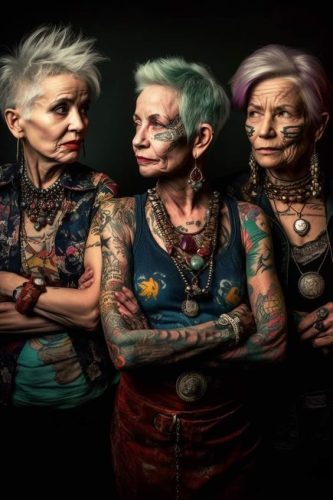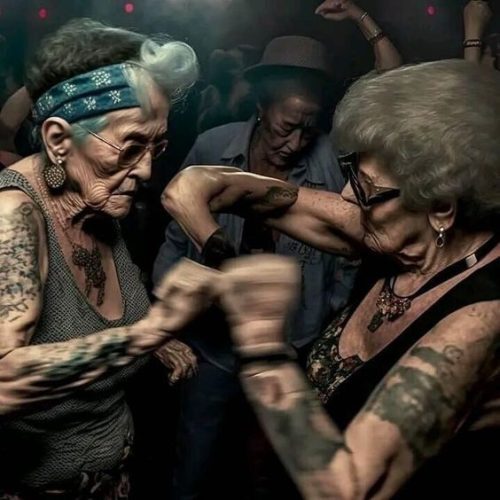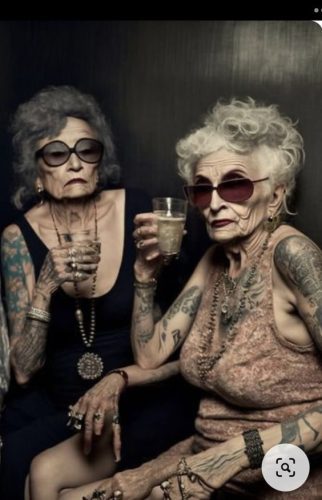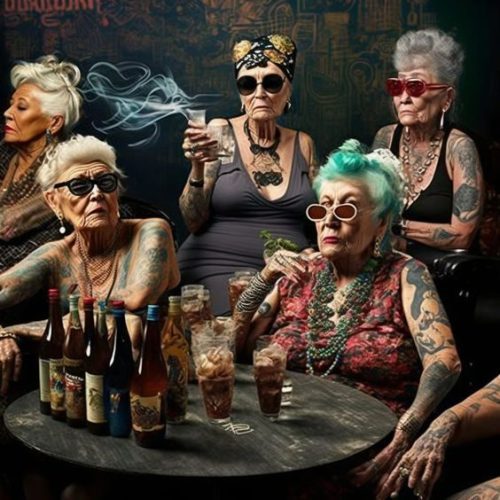
Aging is a natural and inevitable part of life that brings about a multitude of changes, both physical and emotional. As individuals grow older, they encounter challenges such as changes in mobility, cognitive function, and self-image. In recent years, a unique trend has emerged, challenging conventional notions of aging and empowering the elderly to express themselves in new ways: tattoos for the elderly. This article delves into the world of tattoos for seniors, exploring how this form of self-expression can help navigate the complexities of aging while embracing individuality.
Tattoos as a Form of Self-Expression:

Tattoos have long been a way for people of all ages to express their personalities, beliefs, and life experiences. The perception of tattoos has evolved significantly over the years. Once considered a rebellious statement mostly embraced by the younger generation, tattoos are now seen as a form of art and personal expression that transcends age barriers.
For seniors, tattoos serve as powerful symbols of self-identity, allowing them to communicate their life stories and passions to the world. Whether it’s a representation of their cultural heritage, a tribute to a loved one, or a symbol of personal resilience, tattoos for the elderly provide a canvas for sharing the rich tapestry of their lives.
Breaking Free from Stereotypes:
As people age, there is often societal pressure to conform to certain expectations and stereotypes associated with old age. Tattoos provide a medium through which seniors can break free from these constraints and embrace their individuality.

Far from conforming to conventional norms, older individuals can use tattoos to make a bold statement about their uniqueness and the diverse experiences that have shaped their lives.
By adorning their bodies with meaningful ink, seniors challenge the notion that aging comes with a loss of identity. Instead, tattoos become a celebration of a life well-lived, a testament to resilience, and a bold declaration of independence.
Enhancing Mental Well-being:
The process of getting a tattoo can also contribute to the mental well-being of seniors. The experience is an opportunity for self-reflection and a sense of control over one’s body and choices. It provides a positive outlet for creative expression and a chance to engage in meaningful conversations with tattoo artists, family members, and peers.

Moreover, the visible and permanent nature of tattoos can instill a sense of pride and confidence, contributing to improved self-esteem. As individuals age, maintaining a positive self-image becomes crucial, and tattoos offer a unique way to achieve this while fostering a sense of empowerment.
Conclusion:
Tattoos for the elderly represent more than just ink on skin; they embody stories, experiences, and the vibrant individuality that persists throughout a lifetime. This growing trend reflects a shift in societal attitudes towards aging, encouraging seniors to embrace their uniqueness and challenge stereotypes.
As the elderly navigate the complexities of aging, tattoos emerge as a powerful tool for self-expression, fostering mental well-being, and breaking free from societal expectations. The inked narratives on aging bodies become a testament to the enduring spirit of individuality, proving that the journey through the golden years can be adorned with symbols of strength, resilience, and the rich tapestry of a life well-lived.





